We didn’t know how passionate the people of Ecuador were about their food until we spent two weeks traveling throughout the country to enjoy different Ecuadorian dishes from different regions. Ecuadorian food amalgamates history, blending indigenous and colonial cooking techniques and dishes. You can taste traditional food with roots in the Amazon, Spanish colonial foods in Quito, and Andean dishes in the surrounding Mountains. While the Ecuadorian coastline is known for its seafood dishes, the inland region has hearty grilled meats and river fish.
The country’s layout and history result in a massively exciting modern cuisine, with plenty of traditional Ecuadorian food to try. Of all the South American countries, Ecuador is one of our favorites in terms of cuisine.
Table of Contents
Traditional Ecuadorian Food
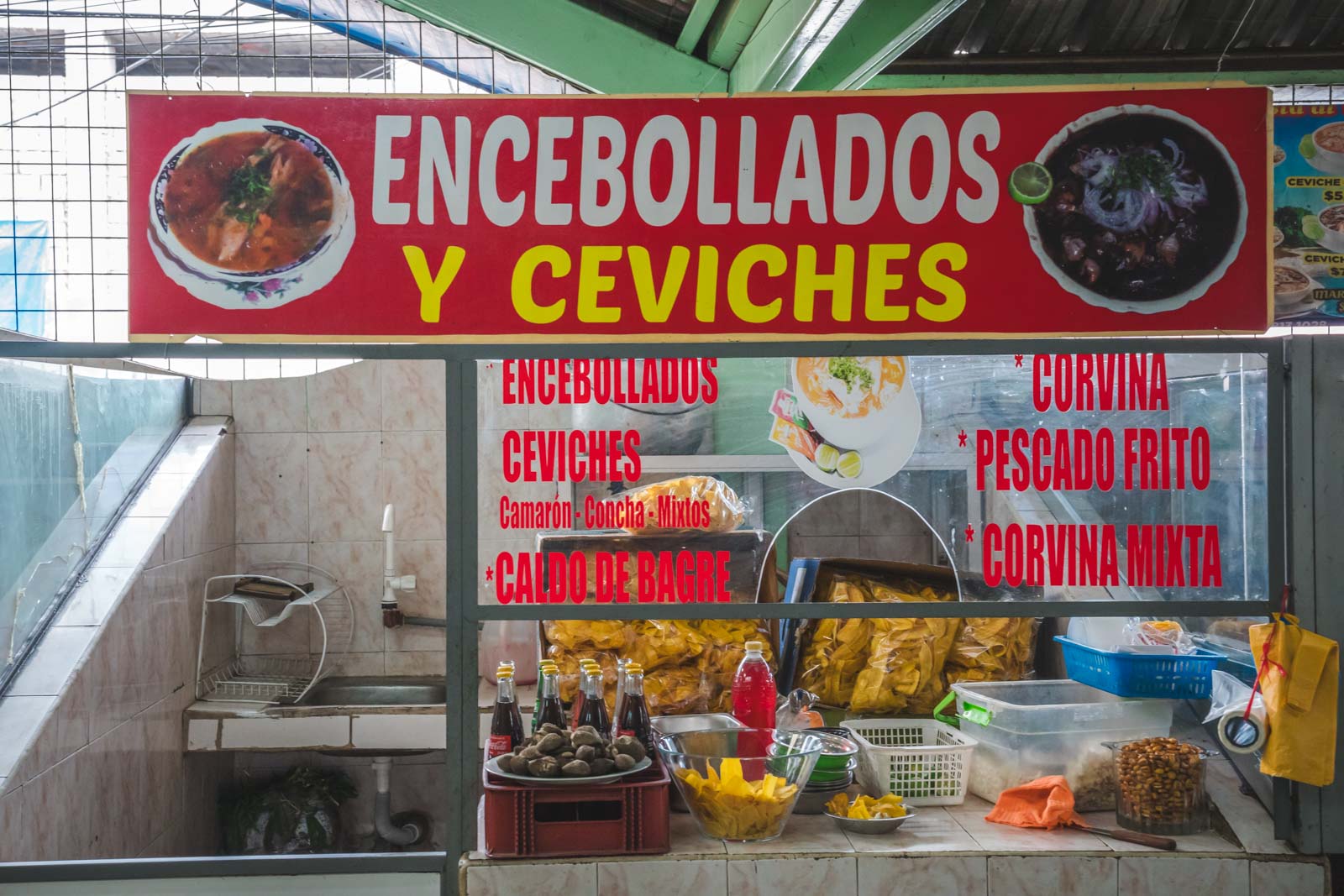
It’s hard to pinpoint a single national dish in Ecuador. There are the famed roasted guinea pigs, deep-fried bolon de verde, and grilled pincho meats. In this guide, we’ll introduce you to the most traditional foods you must try in Ecuador. Whether you fancy a hearty soup or pan de yuca, we’ll find a traditional Ecuadorian dish for you.
1. Fanesca
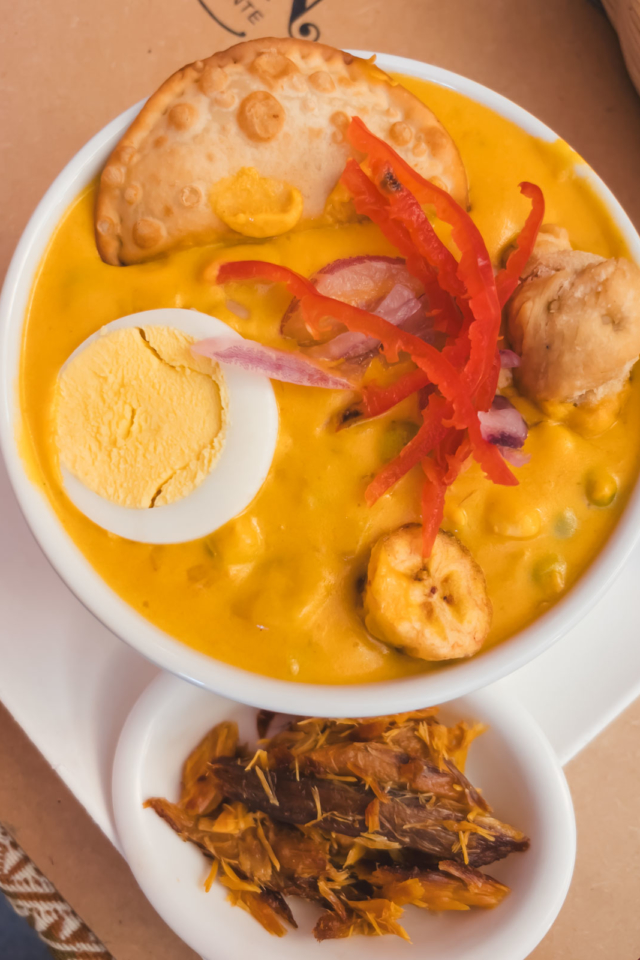
Fanesca is a rich, hearty soup deeply ingrained in Ecuadorian culture and tradition. It is particularly associated with the Easter season. This Ecuadorian dish symbolizes the fusion of Indigenous and Spanish influences.
The ingredients reflect the country’s biodiversity, incorporating 12 different kinds of beans and grains, such as lentils, peas, corn, and broad beans, each representing one of the apostles. Bacalao (salt cod) is at its center, with milk and pumpkin thickened into a creamy consistency. It is both nourishing and complex in flavor.
It is customarily consumed during Holy Week across Ecuador but visitors can order it at restaurants in Ecuador, particularly in Quito. I actually had this dish in Quito at San Augustin Restaurant and found it to have a really complex and rich flavor. There is definitely a lot going on in this soup, and you should have a good appetite before ordering it..
Fanesca is often garnished with hard-boiled eggs, fried plantains, cheese, and sometimes empanadas (like mine was), adding layers of texture and richness.
2. Llapingachos
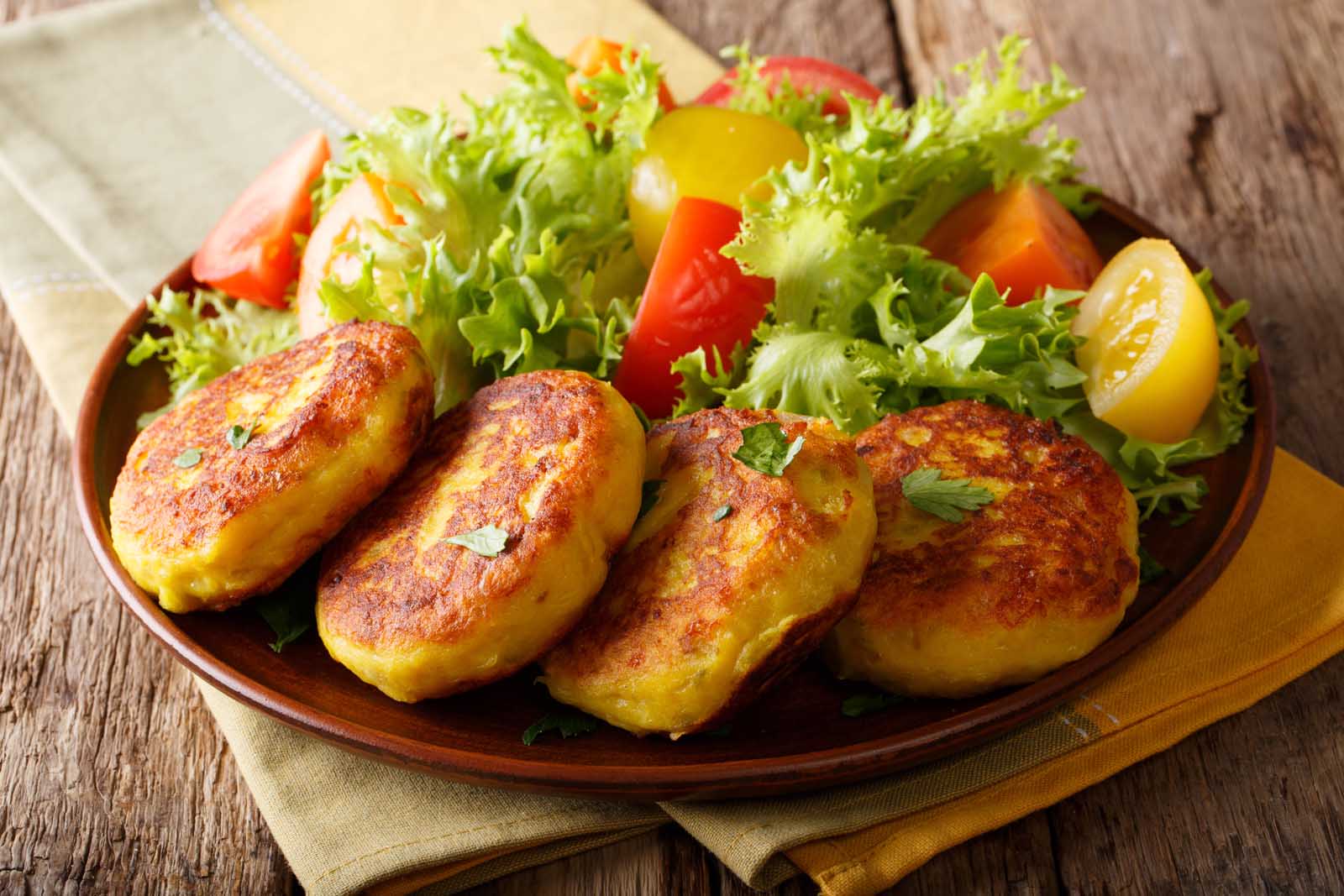
Llapingachos are a traditional Ecuadorian dish known for their delightful taste and texture. These fried potato cakes are a staple in the country’s cuisine. They are essentially potato pancakes, made from a mixture of mashed potatoes and cheese, seasoned with a hint of annatto for color and flavor.
Once formed into patties, they are pan-fried until golden and crispy on the outside while remaining soft and gooey on the inside. Llapingachos are commonly enjoyed across Ecuador, especially in the Andean regions.
They are typically served as a side dish but can easily take center stage in a meal. Accompaniments for llapingachos vary, but they are often served with a side of avocado, aji (a spicy Ecuadorian sauce), and curtido (a type of pickled onion salad).
3. Guatita
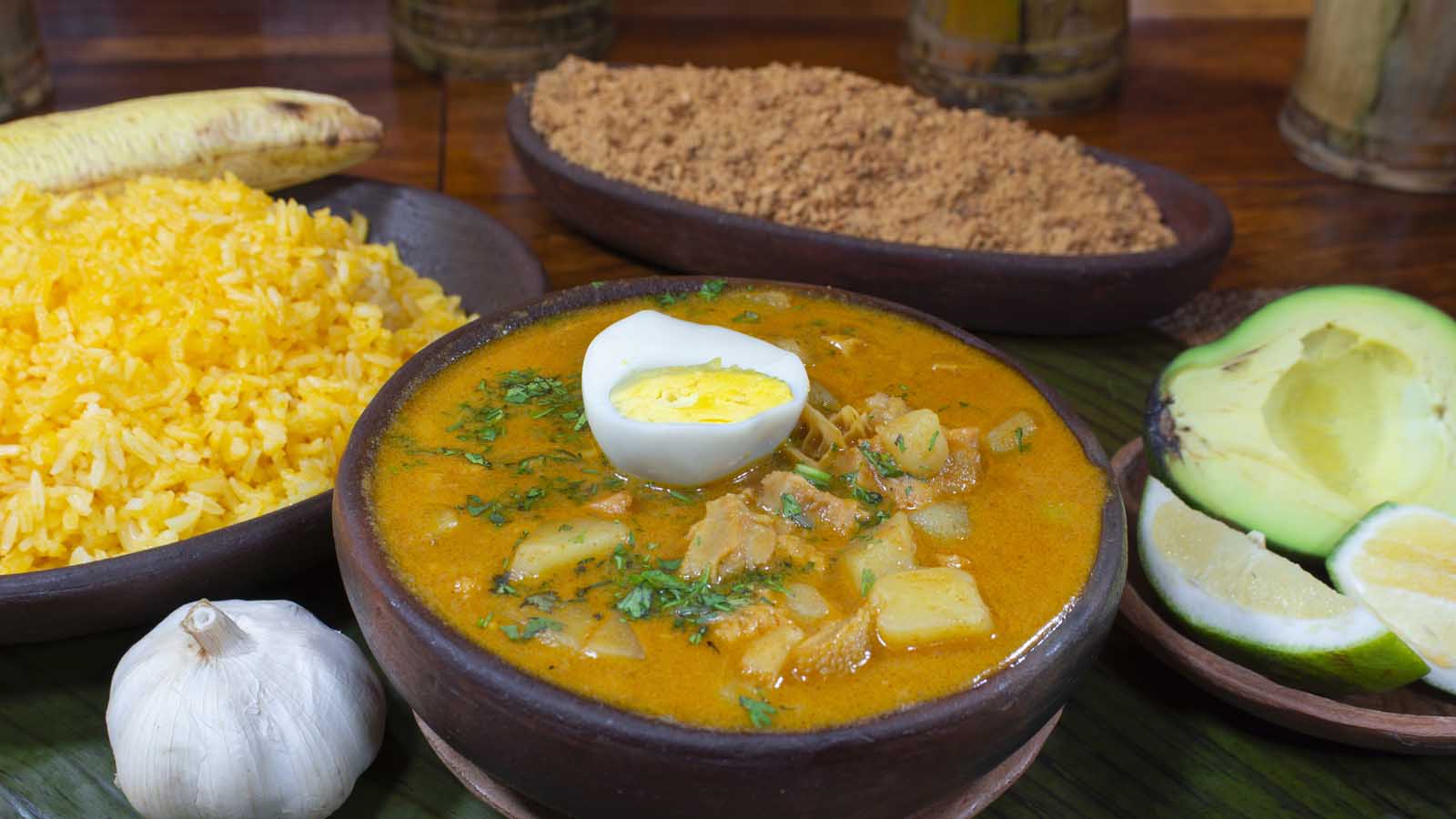
Guatita means ‘little belly’ in English, and this dish consists mainly of beef tripe, a meat cut taken from the stomach. It is an absolute staple in Ecuadorian cuisine, and the beef is cooked in a delicious peanut sauce and served creamy with boiled potatoes. The rich peanut sauce is spiced with cumin, garlic, and cilantro, a flavorsome body for the slightly rubbery tripe meat. For an extra kick, picked onions are occasionally served on the side. It’s easy to see why guatita has such a reputation. Some even claim guatita as the ultimate hangover cure – we’ll let you be the judge of that.
Guatita is one of the dishes influenced by Spanish colonialism in Ecuador. Spanish use of beef tripe dates back to the 16th century.
4. Ceviche
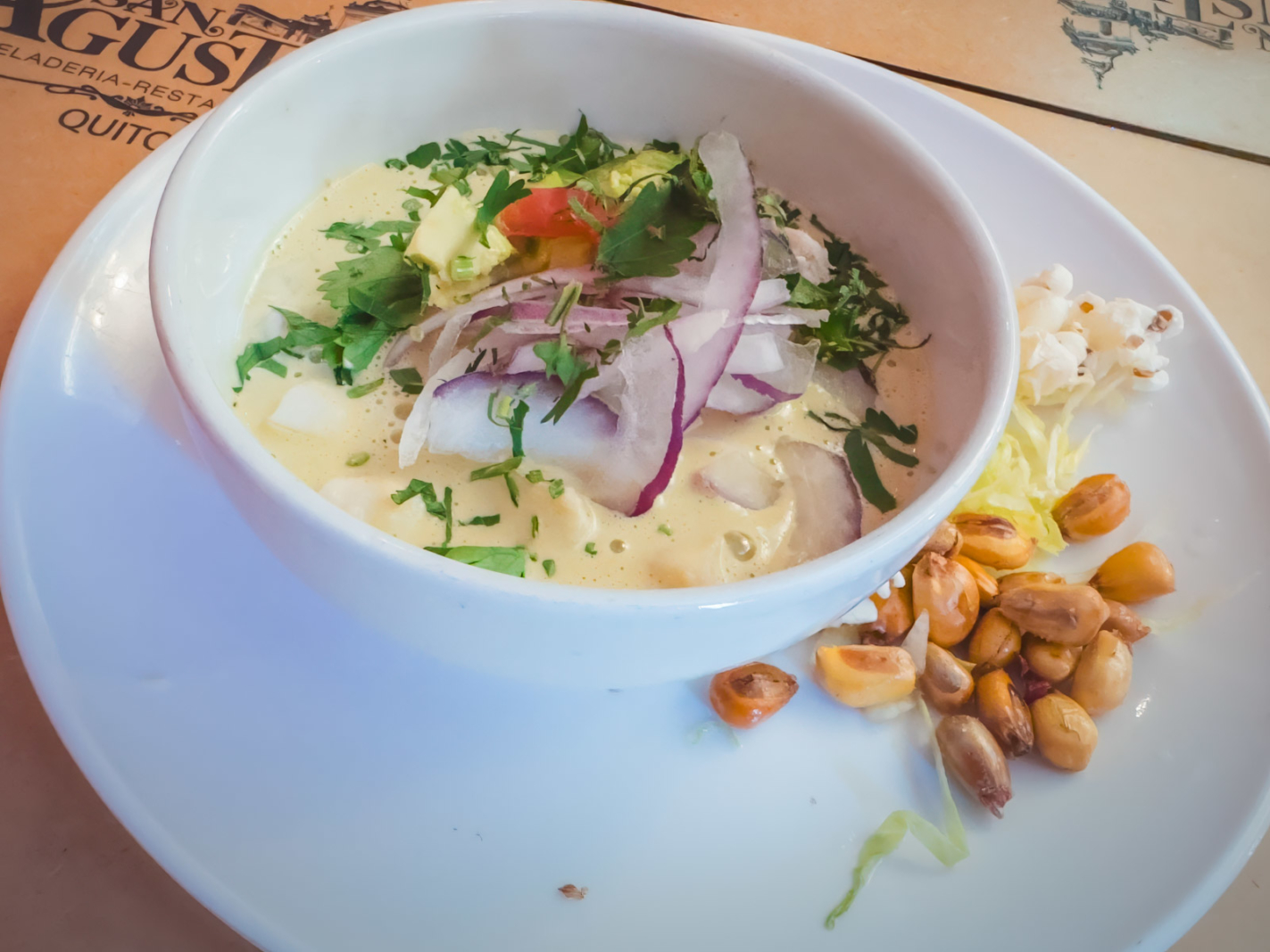
Ceviche is a familiar dish, and chances are you’ve already heard of this popular fish dish. It is said to have originated in Peru, but many countries boast their own adaptations. Ecuadorian ceviche really takes its influences from the Incas and Spanish colonialism around the Ecuadorian and Peruvian border. Given the proximity of Peru and Ecuador, it’s also no surprise that the dish is equally popular in both countries.
Ceviche is a cold raw fish and seafood dish, popular throughout Latin America. The seafood is marinated in lime and lemon juice and mixed with onions tomatoes, and cilantro. It often includes shrimp, but can also be made with fish or other seafood.
The fish and seafood are typically served chopped into little chunks and served with onions. It comes in many different forms, including a less traditional vegetarian Ceviche for the modern world which uses bell pepper and avocado instead, but shrimp ceviche is our top recommendation. Served cold, shrimp ceviche is truly delicious.
5. Encebollado
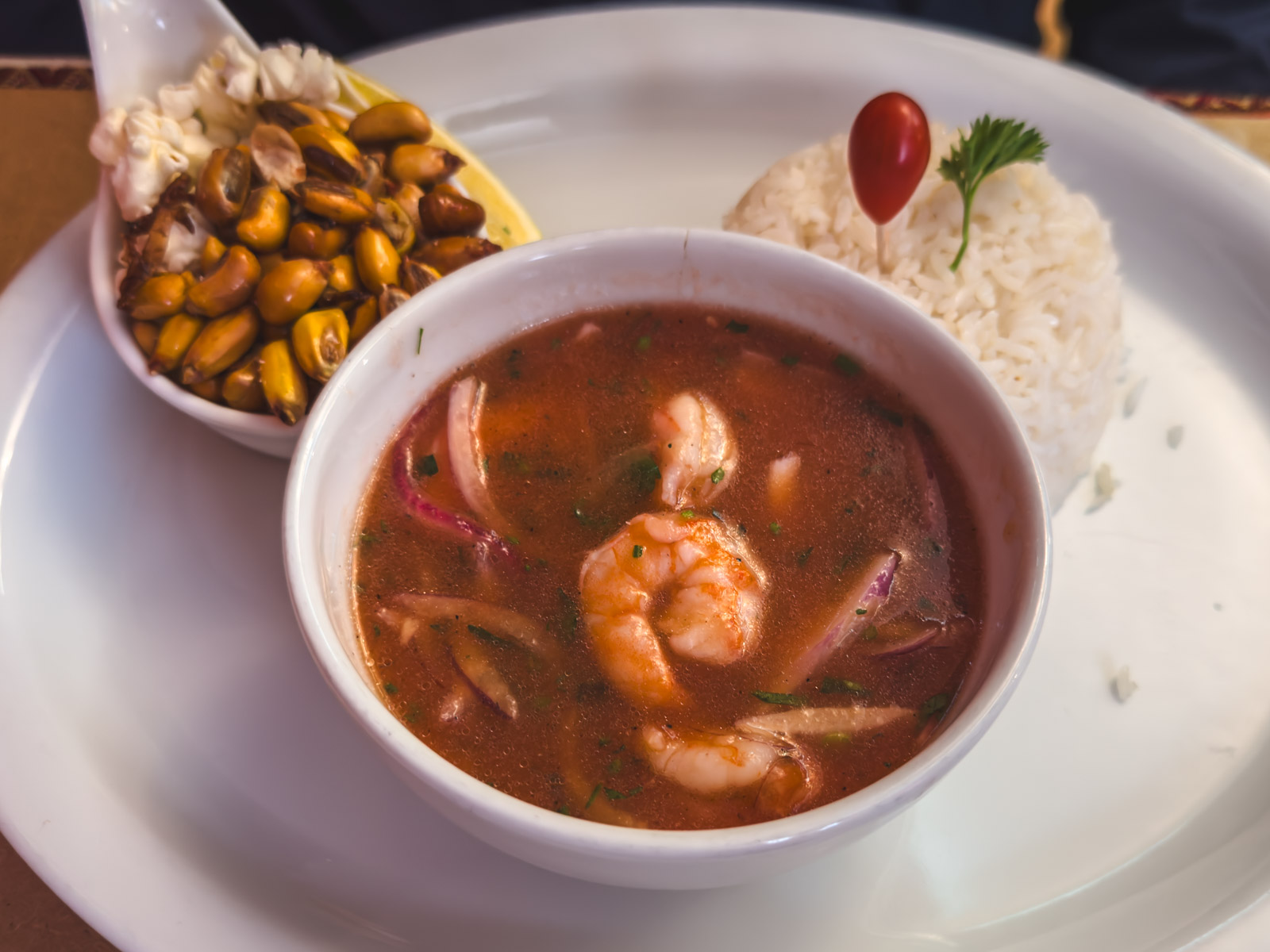
Encebollado is a hearty fish stew made with tuna, yuca (cassava), tomatoes, onions, and spices. It’s often served with pickled red onion and tomatoes on the side. It’s especially popular as a hangover remedy.
Heading to the Ecuadorian coast, you’ve got to try this delectable fish stew. Encebollado is a thin soup served with bulky fish (usually tuna), cassava, and pickled onions. The word ‘encebollado’ literally translates as ‘cooked with onions’, which is a great clue as to what this dish mostly gets its taste from. Encebollado really packs a punch with flavor, and its thin stew sauce is light and fragrant – the perfect smooth addition to its main feature; fish.
Encebollado rose to popularity as an alternative to ceviche and really hit its heights of fame in the 1970s. Of course, now, you can find the dish widely available in restaurants and street stalls. It has even spread away from its birthplace on the coastline, and you can find it further inland in places like Quito.
6. Arroz Marinero
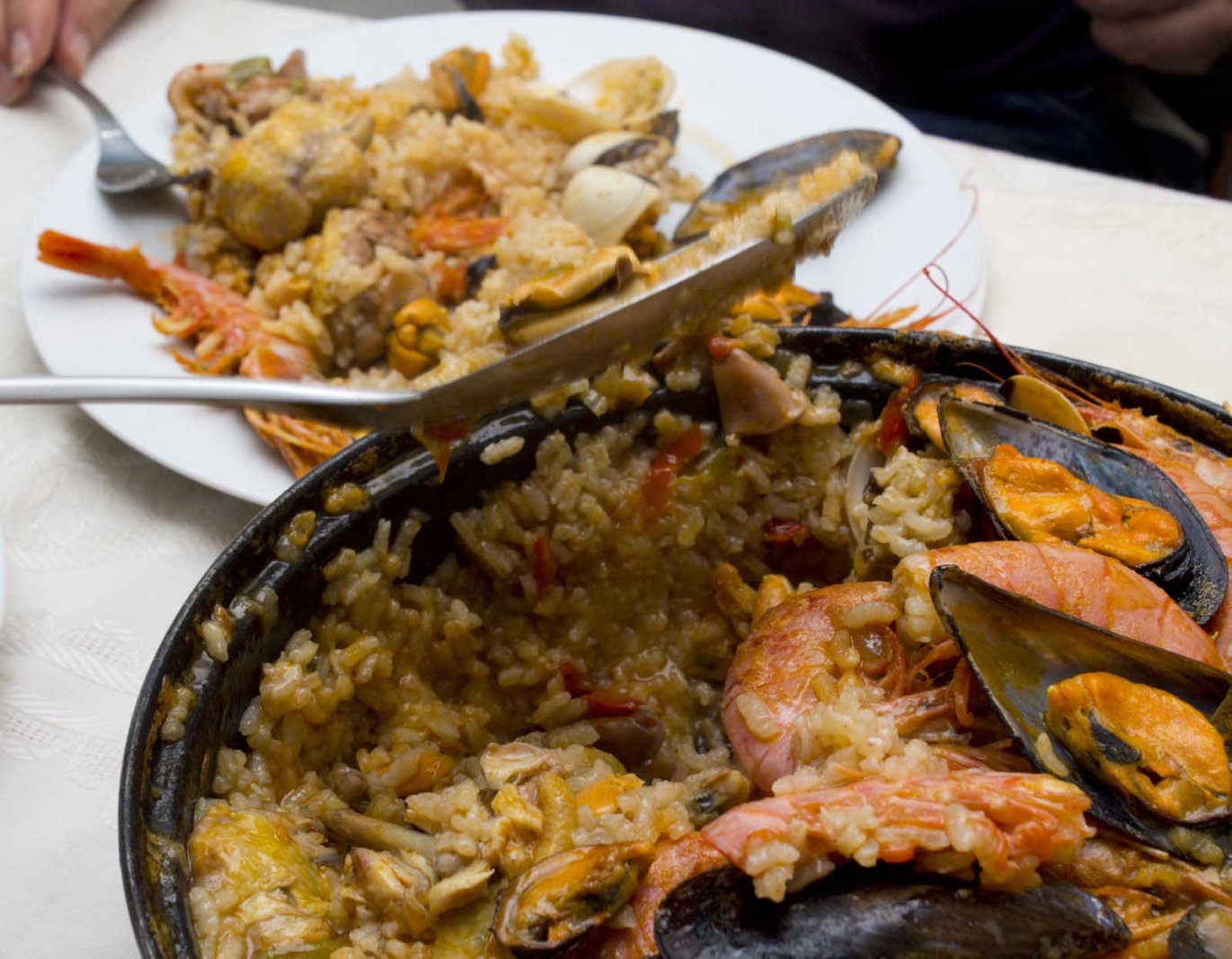
Arroz marinero is simply seafood rice, a massively popular part of coastal cuisine in Ecuador. This traditional dish can be found all over South America and is similar to Spanish paella—three guesses where it originated.
Its main ingredients are rice, sauteed shrimp, clams, onion, and spices, all cooked in a flavorsome seafood broth for added taste. While the best place to taste this dish is undoubtedly the Ecuadorian coast, you can find it all over the country in restaurants. If you are looking for inspiration for Ecuadorian food to cook at home, this is also a real table feature of a dish. With all the clam shells, it is a really dramatic-looking dish to try at home.
7. Tigrillo
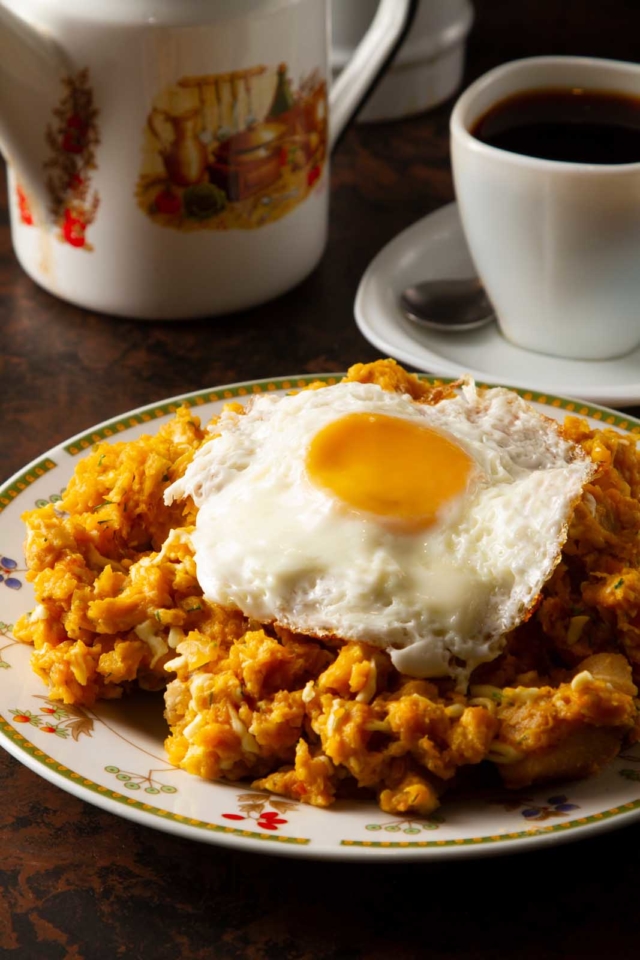
If you enjoy hashbrowns for breakfast, you’ll love Tigrillo, a traditional Ecuadorian breakfast dish. Forget a fried egg and get more traditional; tigrillo serves mashed green plantain alongside scrambled eggs, melted cheese, and a scattering of sauteed onion. If you are looking for inspiration for breakfast, tigrillo is an excellent bet. You usually order it alongside a cup of piping hot coffee, and it’s the perfect way to start your day.
The mashed plantain can be sweeter or really savory, depending on how ripe it was. Yellow plantains are sweeter, while green plantains are typically used in dishes like this to provide a more savory taste. The dish is typically served with hot sauce on the side and with Ecuadorian coffee.
Tigrillo originated in the coastal regions of Ecuador, although it’s equally widespread in the Andean region. You can find it in most cafes in these regions or in significant cities.
8. Bolon de Verde
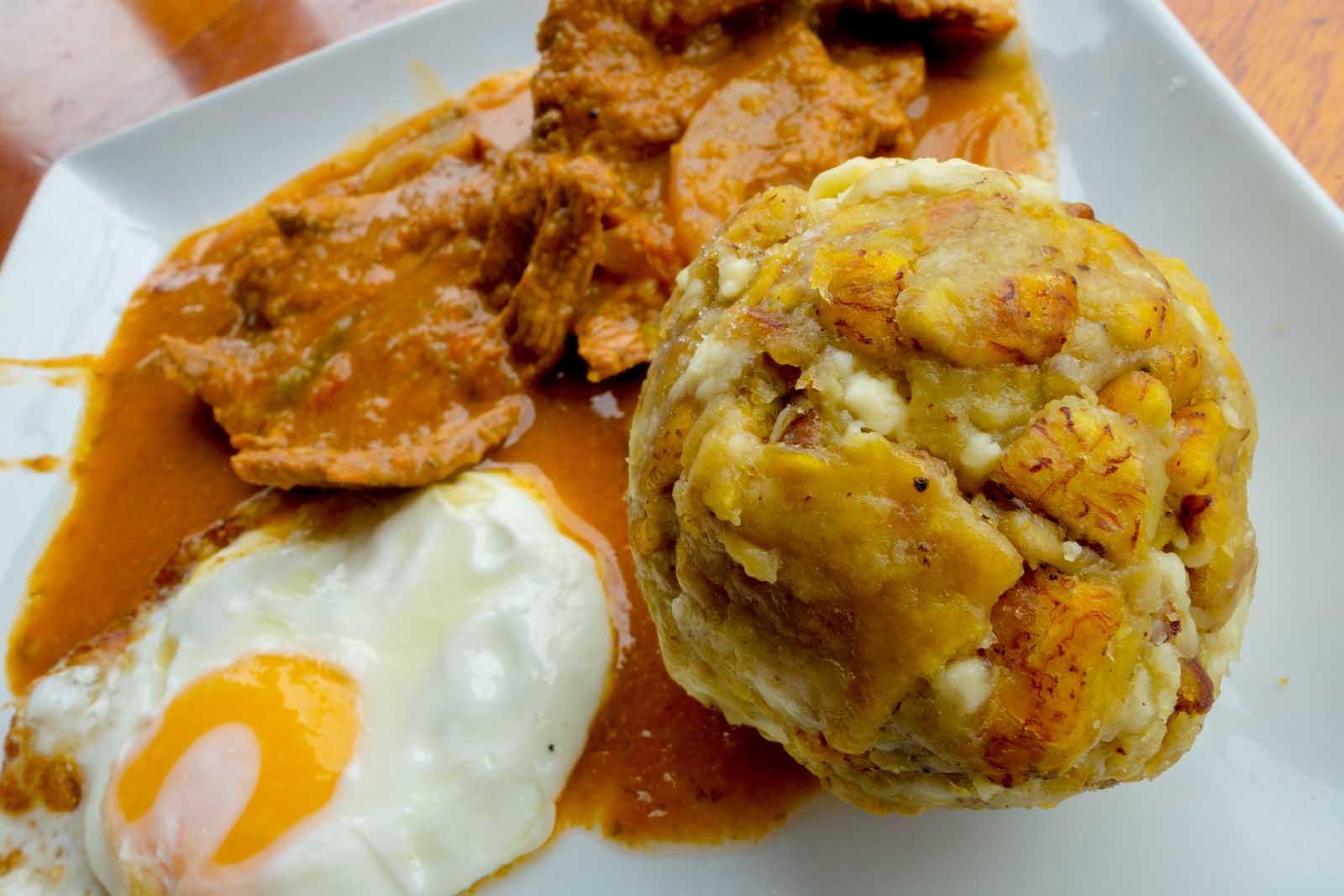
Bolon de Verde are pan-fried green plantains, essentially a dumpling side dish. This is a really popular Ecuadorian food, and we’d go as far as to say they are competing for that national dish title. These green plantain dumplings are filled with cheese, pork, or shrimp and fried. They are often eaten for breakfast or as a snack.
The versatility of these little dumplings is what makes them so popular. You can eat them at breakfast, served alongside fried eggs, or you can snatch them up from street-side vendors for a quick lunch or afternoon snack. They are served piping hot and with a deliciously crispy exterior.
It’s widely thought that bolon de verde originated in Ecuador sometime after the plantain arrived in the early 16th century. However, the exact creation story is a mystery. This tasty treat is definitely worth trying when visiting.
9. Pincho
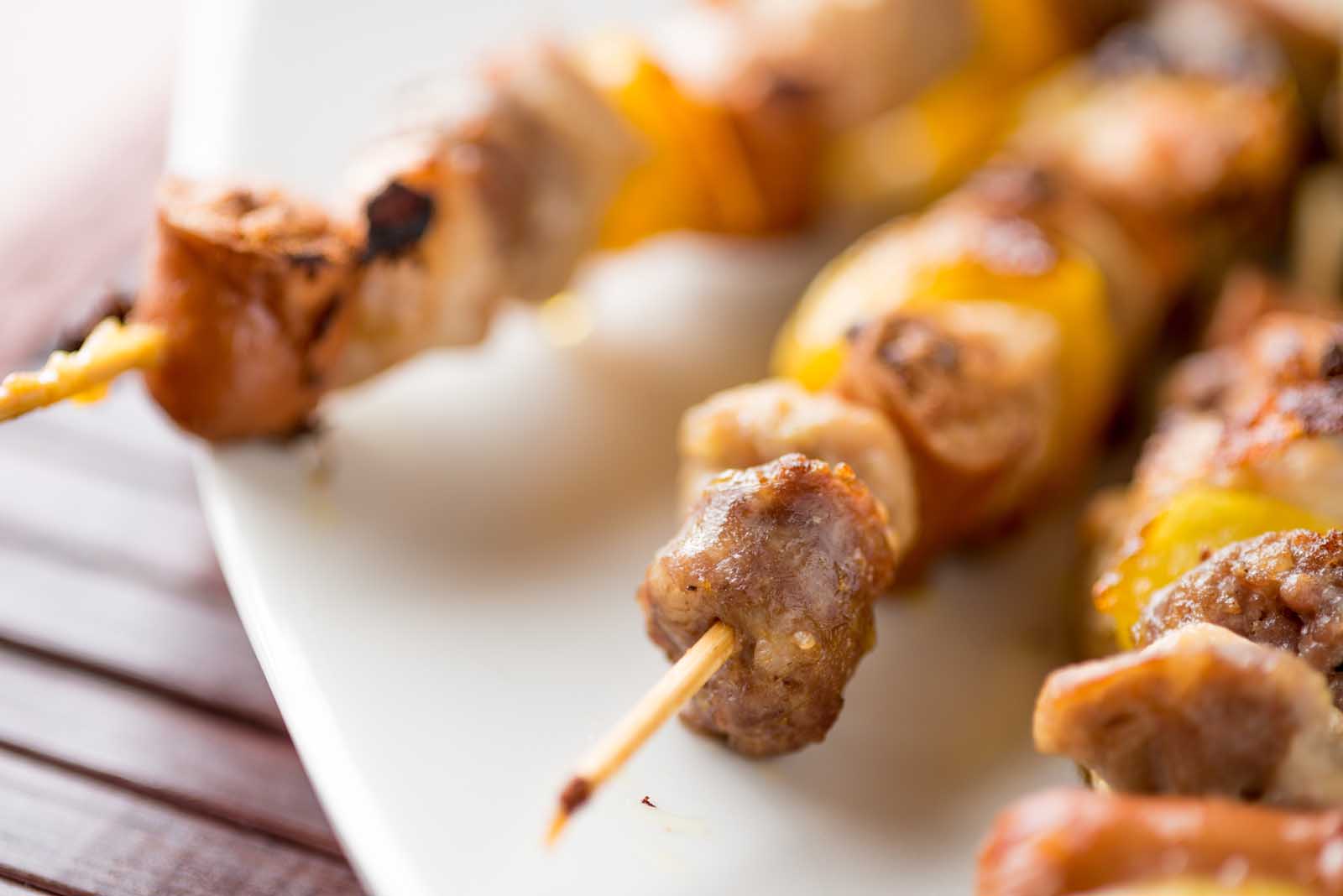
Pincho is a Spanish dish that simply refers to a small snack. It is a variation of tapas, usually served on a cocktail stick or small piece of bread. Think of it as a bar snack rather than shared table plates. Given the Spanish influence on Ecuador, it’s no wonder this sociable dish caught on. It is now one of the most traditional dishes you must try in Ecuador.
The most popular pincho in Ecuador is a street food kebab. Depending on where you visit in Ecuador, you may find them referred to as pinchos or chuzos. This dish is made from a mixture of chorizo, plantain, chicken or beef and plantain chunks.
10. Choclo Con Queso
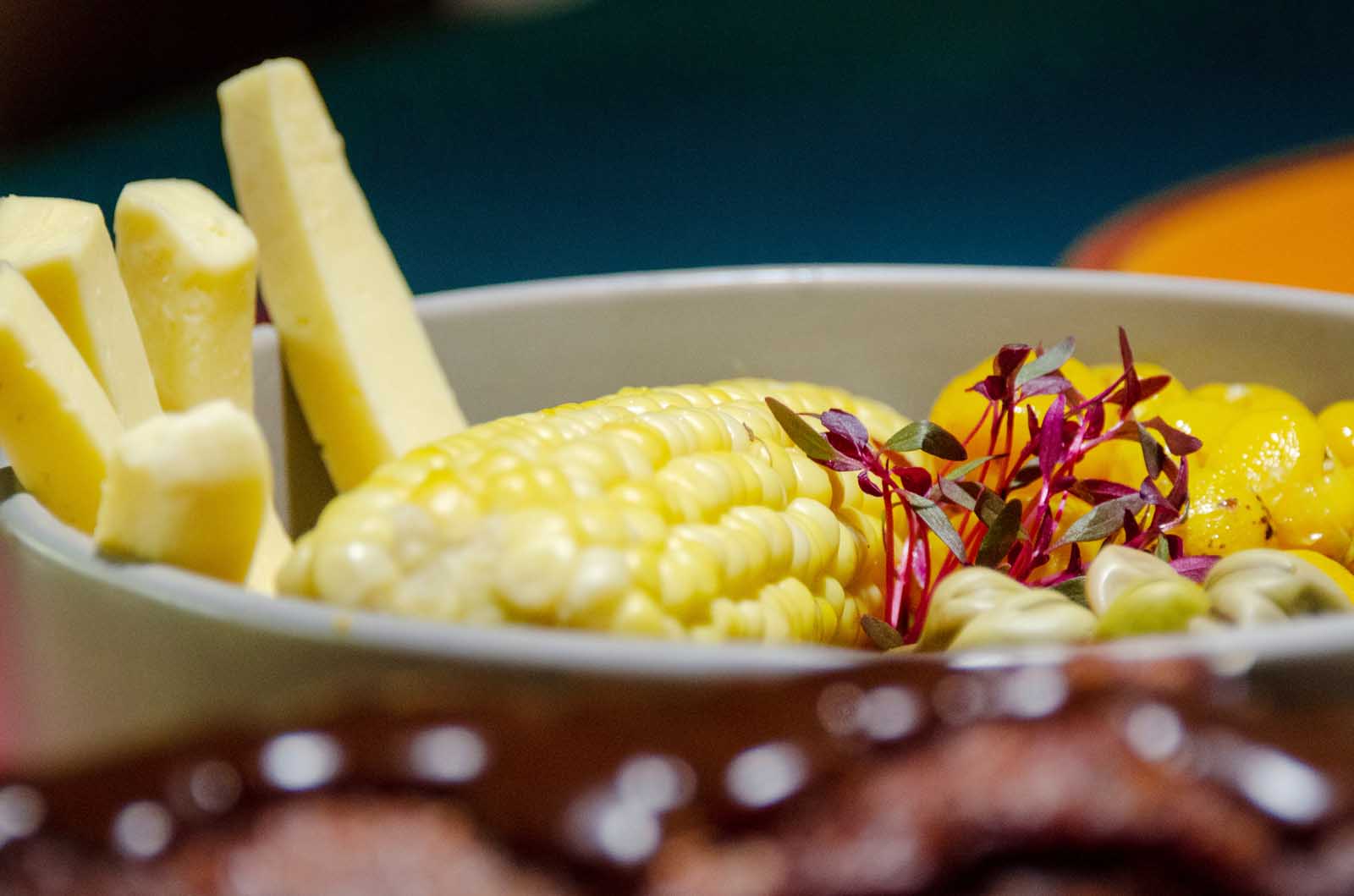
Choclo con queso is a delicious side dish or quick snack in Ecuador. Street food vendors often serve the cooked mature corn as a standalone dish, although you’ll also find it in some restaurants and cafes as a side dish. The toasted corn is served alongside creamy fresh cheese. It has a punchy taste thanks to a healthy dousing of black pepper, garlic, and a smooth coating of melted butter. Choclo con queso hits the spot when you want a healthy snack for a quick craving.
Corn has been cultivated in Ecuador for thousands of years and is a principal crop of the Andean hillsides. Rough estimates say that corn cultivation has been ongoing across the country for over 6,000 years.
11. Enconcado de Pescado
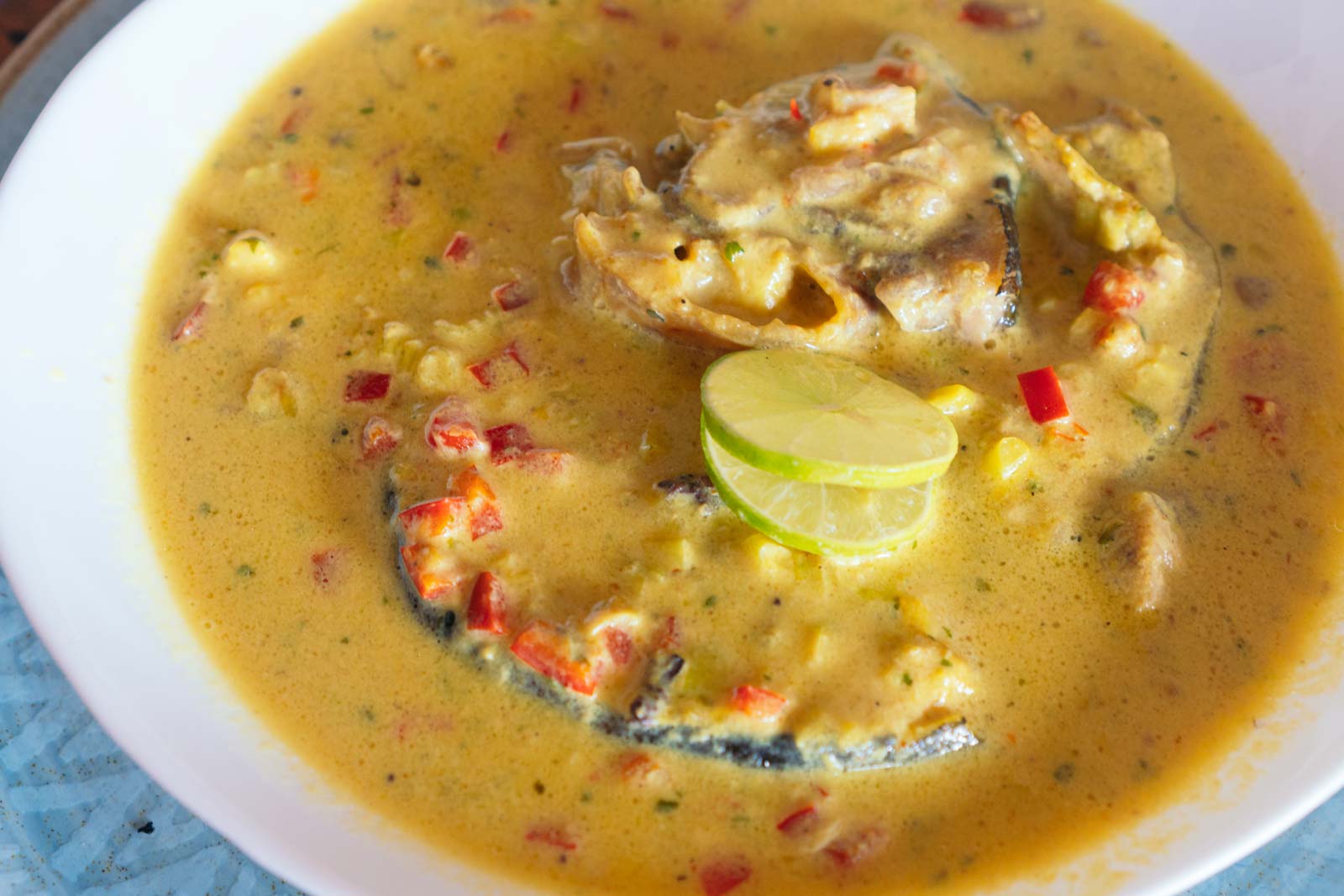
One thing coastal Ecuador is famous for is its use of coconut sauce. Therefore, you’ll instantly know where pescado enconcado, a fish dish served in thick coconut milk and lime juice, comes from. This tasty dish is a lip-smacking combination of sweet and tangy, with tender white fish lightly flavored in a creamy sauce. Tomato, onion, and bell peppers are usually added to further bulk the sauce.
Usually, pescado enconcado is served alongside rice or fried plantain. It’s a hearty meal choice, perfect for anyone craving an intense flavor.
12. Locro de Papa
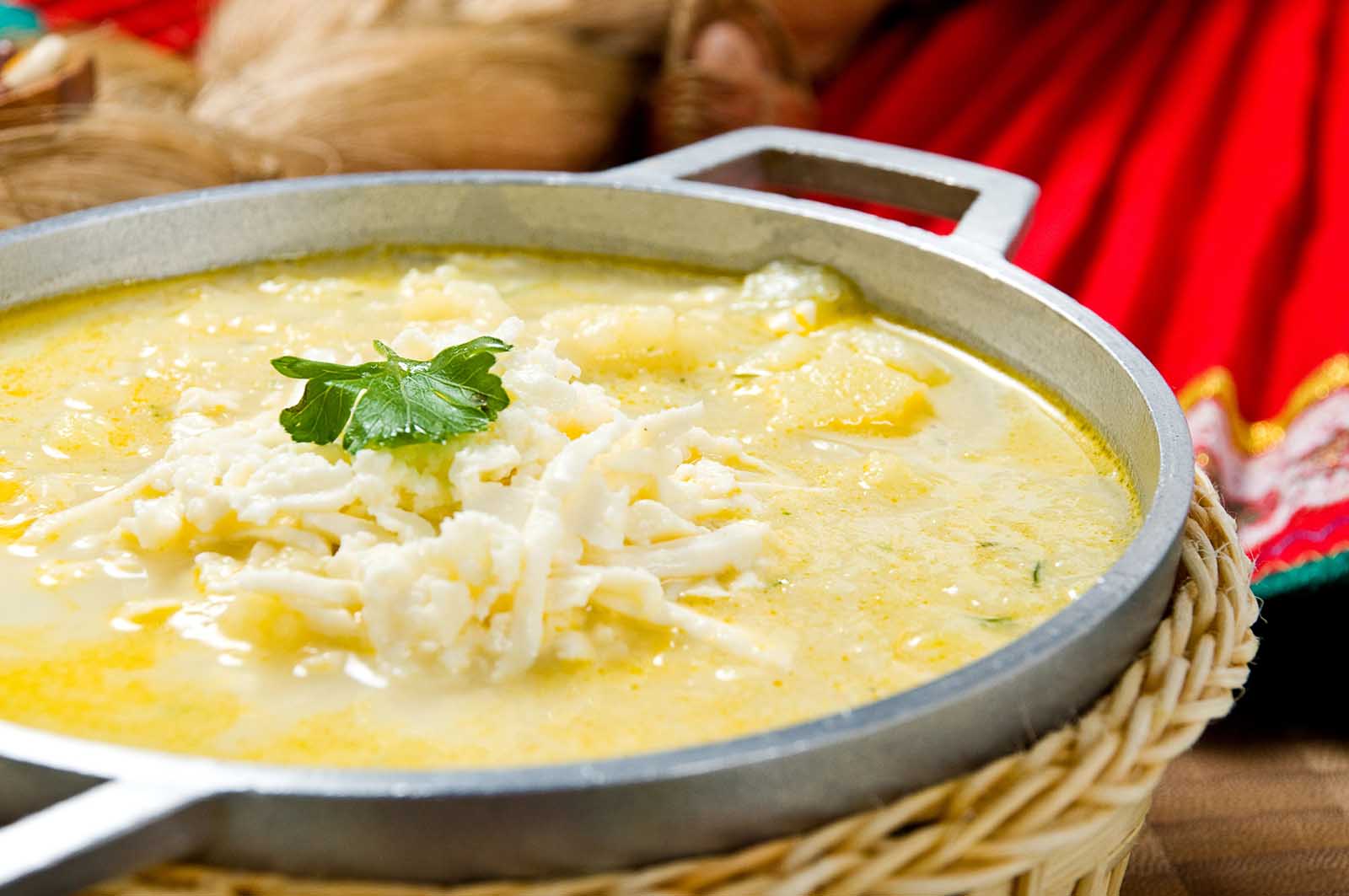
Locro de papa is one of Ecuador’s tastiest soups. Most commonly known as simple potato soup, it is simple yet effective—a stunning mixture of potatoes, fresh cheese, garlic, and broth. The dish has roots in the Andean highlands, and its popularity comes from how warm it is in rainy weather. If you visit Ecuador in the rainy season, keep your eyes peeled for the tasty locro de papa.
In English, ‘locro’ is just a meat or vegetable stew. While locro de papa is potato soup, the ‘stew’ reference indicates how hearty the dish is. It’s a heavily filling meal; no wonder it’s a traditional favorite.
13. Colada Morada
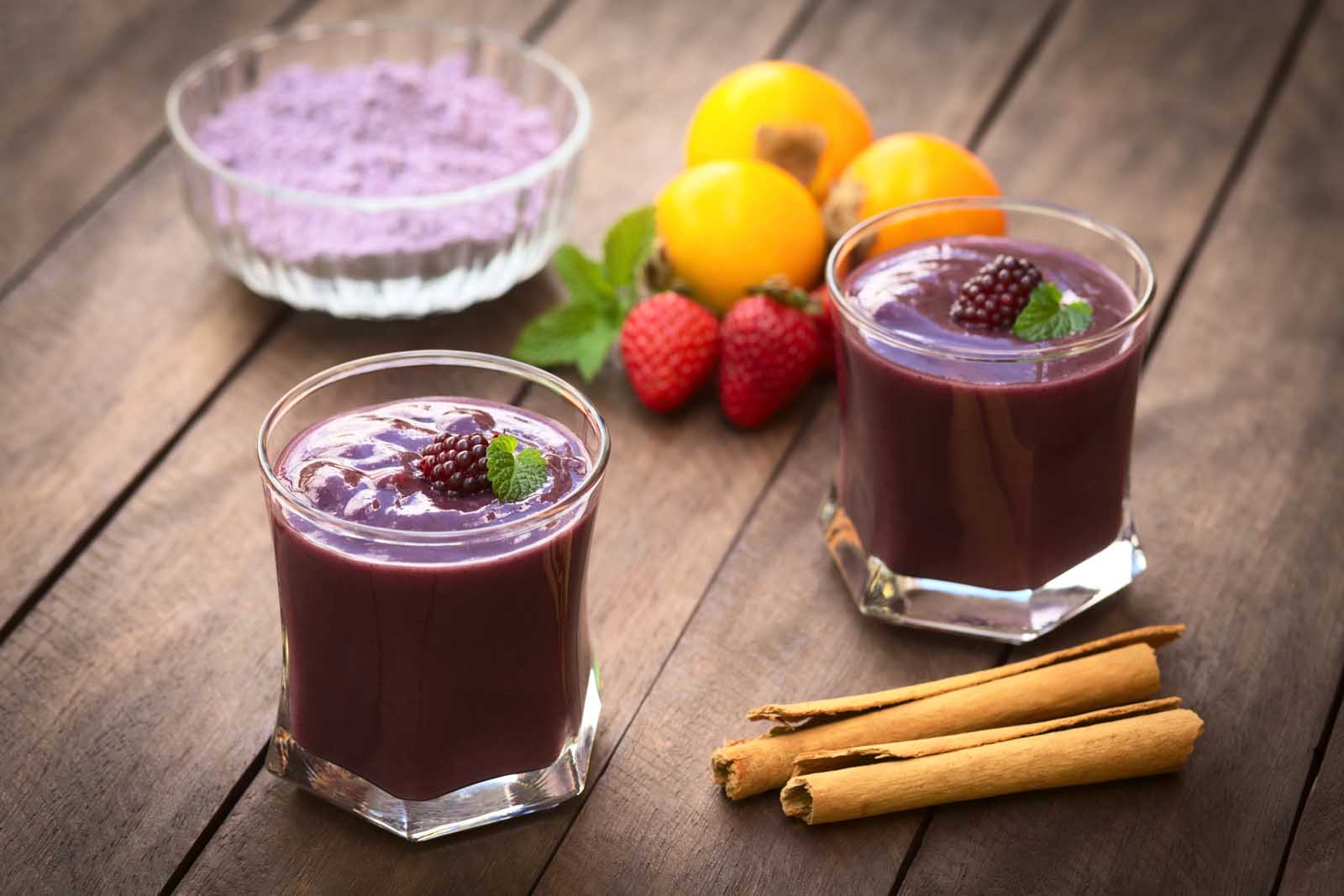
Does anyone have a sweet tooth? Colada morada will satisfy your sweet craving. This eye-catching purple drink is the sweetest Ecuadorian dessert and rich in fruit juice. It contains a mix of strawberries, blackberries, pineapple, and purple cornflour. It is super sweet and a great way to try some of Ecuador’s fruits.
While colada morada might be a fun-looking drink to try in Ecuador, it has a more somber backstory. It is traditionally enjoyed on the Day of the Dead, every November the 1st, when Ecuadorians remember those they’ve lost and visit cemeteries to take flowers and clean graves. It is a lesser-known version of the Mexican Day of the Dead.
14. Seco de Chivo
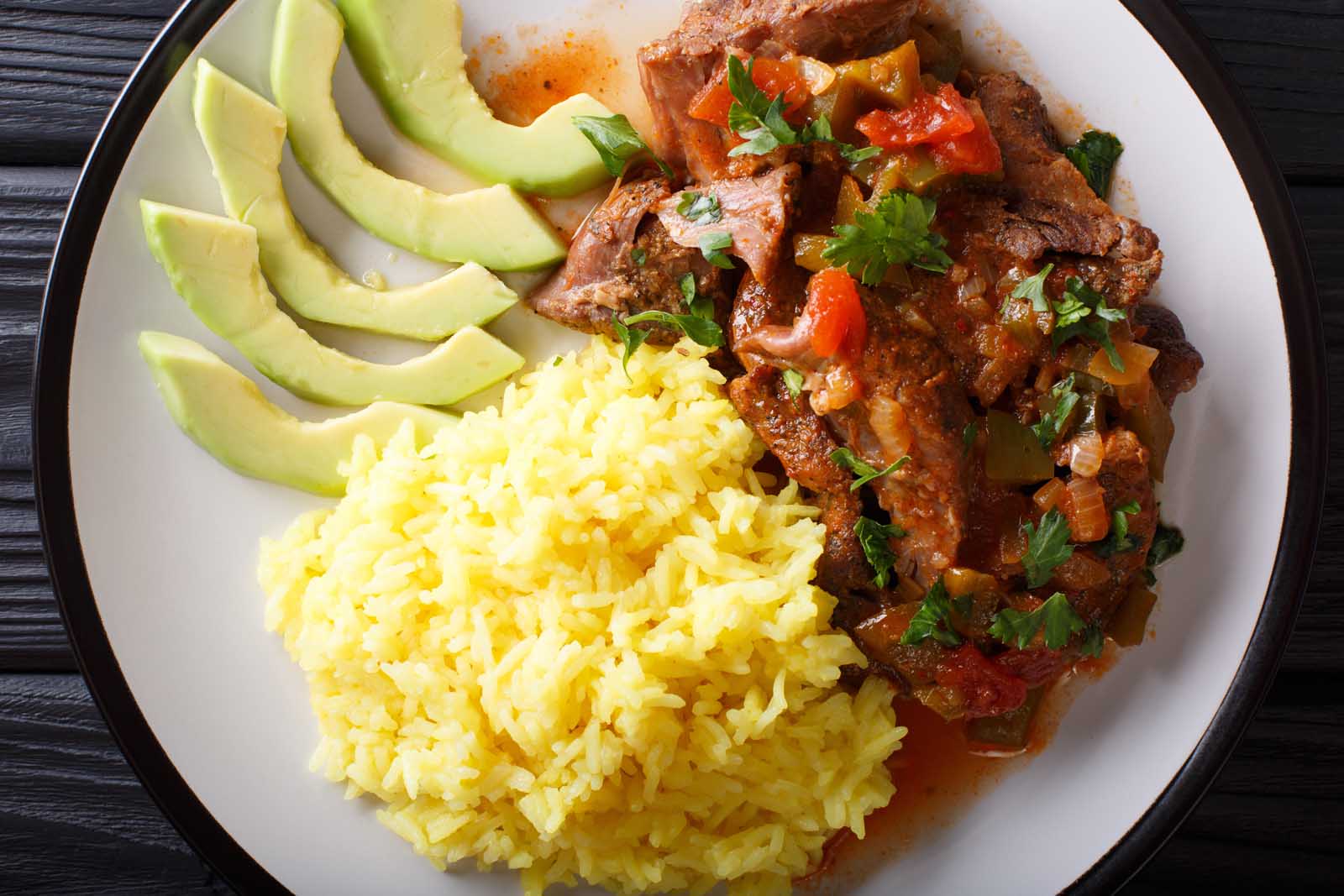
Seco de chivo is a rich goat stew. It is braised in a heavy garlic, cumin, tomato sauce, onions, and cilantro sauce. Expect plenty of flavors and goat meat absolutely blanketed in a rich brown sauce. Seco de chivo is usually served alongside yellow rice and fried plantains and is traditionally a dish for special occasions like family celebrations. Luckily, you can also find it in plenty of restaurants for everyday eating.
This dish is hugely popular in the regions of Loja and Santa Elena. It is a traditional variation of a seco, a thick stew.
16. Pan de Yuca
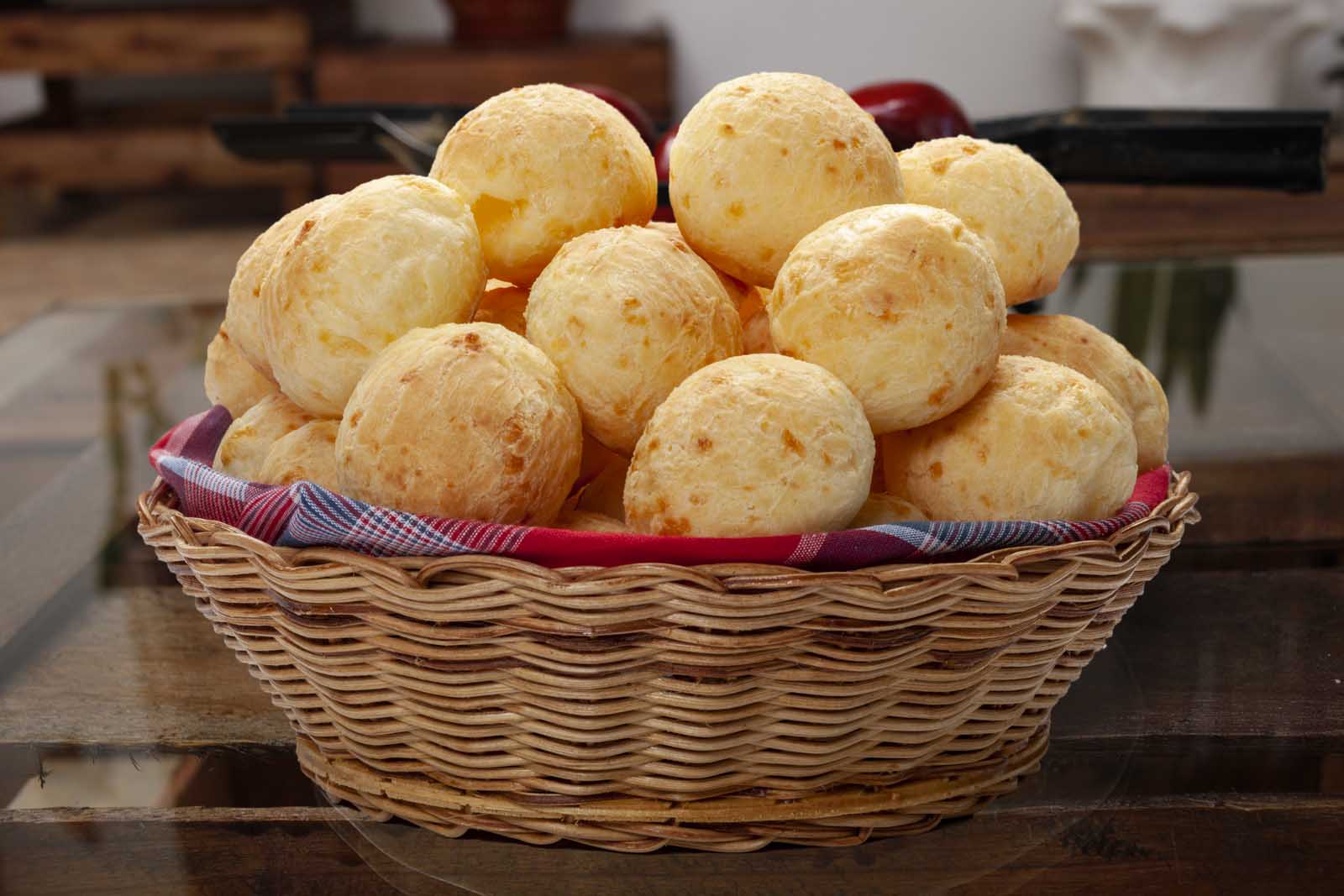
Pan de yuca is one of the most delicious Ecuadorian food choices. These tiny, bite-size balls of bread are made from yuca flour or cassava starch and cheese. You can find them as street food, snacks, or starters in restaurants and cafes. The soft bread quickly wins you over, and the cheese adds a deliciously strong flavor.
Yuca bread is found predominantly in Colombia and Ecuador. Colombia calls its sister dish pan de bonos and uses cornstarch, an ingredient Ecuadorian Yuca bread skips. The dish is said to have originated along the country’s border in Manabi as a solution to the lack of standard flour. The abundant cassava starch created the perfect bread alternative, and ‘yuca bread’ was born.
15. Plantain Chips
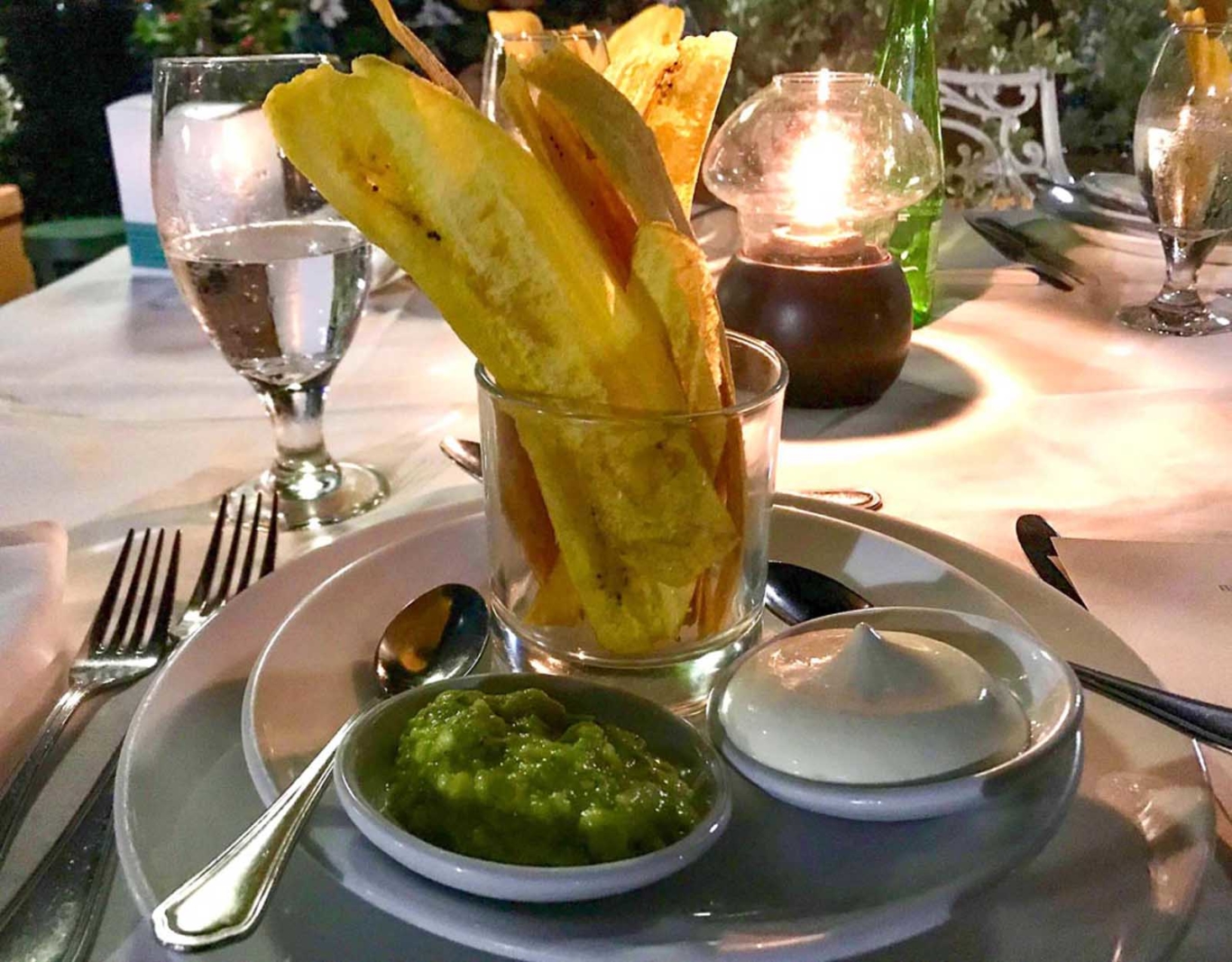
Plantain chips are a healthy snack available in supermarkets and from street vendors. Plantains are similar to bananas; in fact, to the untrained eye, you could easily mistake the two. The only difference is that plantains are more starchy and much bigger. Plantain chips are made from fried green plantains (not ripe plantains). They are a great source of fiber and rich in nutrients like potassium and vitamins A and C.
You can find fried plantains all over the world. The plant originally came from Southeast Asia and is found in Africa and South America. Ecuador really caught onto the plantain hype in 1910 when it entered the banana trade, at which time it also introduced the banana-twin plantains.
16. Cuy Asado
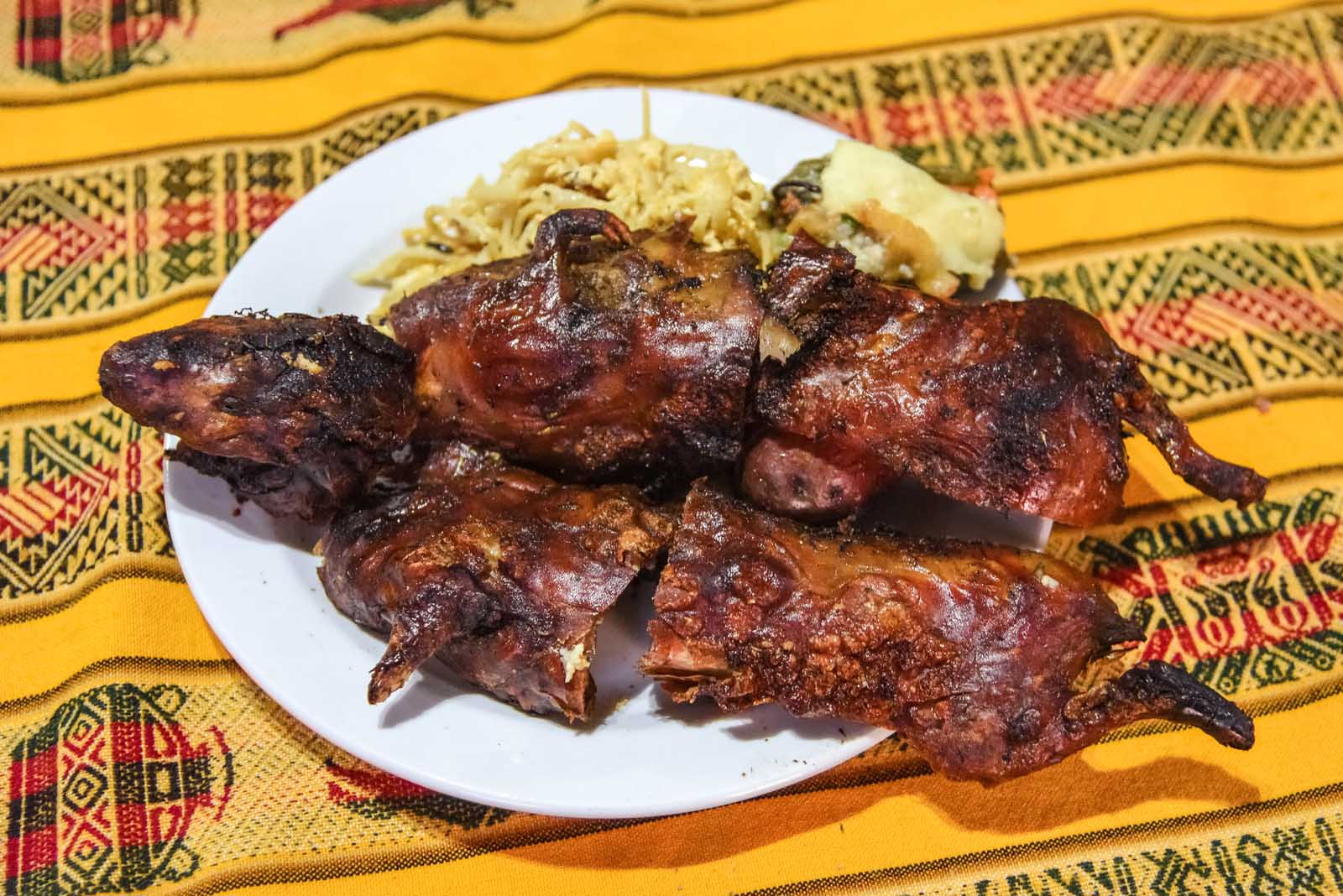
The vast majority of the world may consider guinea pigs as a pet. Still, these cute little rodents are traditionally from the Andes of South America. And before they were in a pet shop near you, they were traditional dishes since the pre-Colombian times. Indigenous peoples have eaten roasted guinea pig for thousands of years, and you can still try the dish today.
Grilling meat is traditionally done over hot coals for a slightly smoked quality, and we suggest grabbing some hot sauce as a condiment. Asado is typically enjoyed with a heavy-bodied red wine, and we recommend treating yourself to a sit-down restaurant experience for this dish.
Asado is a traditional Andean dish often marinated in garlic, cumin, and salt and roasted whole. It is simply grilled meat served at a barbeque or grill restaurant. If you want a protein-filled meal in Ecuador, look for an asado. It can include any meat, including chicken, beef, and goat. In Ecuadorian cuisine, you can even find grilled guinea pig (more on that later).
Asado is a heavily traditional food, and people have been grilling meat for centuries in Ecuador. Meats like guinea pig have existed among indigenous communities for thousands of years, while meats like beef were introduced by Spanish colonization.
17. Papi Pollo
Papi pollo is real comfort food; if you’re craving a hearty meal, you’ll love this Ecuadorian dish. It consists of roast chicken served alongside heaps of French fries doused in ketchup and mayonnaise. If the chef is feeling extra generous, you can also find a fried egg served on the side of the plate. It is part fast food and part protein overload. In essence, papi pollo really fills your stomach.
You can find papi pollo at plenty of casual restaurants and takeaways across Ecuador. While roasted chicken is an age-old Ecuadorian dish, this adaptation is a more modern love affair. It’s now such a classic that we just had to include it in this guide.
18. Hornado
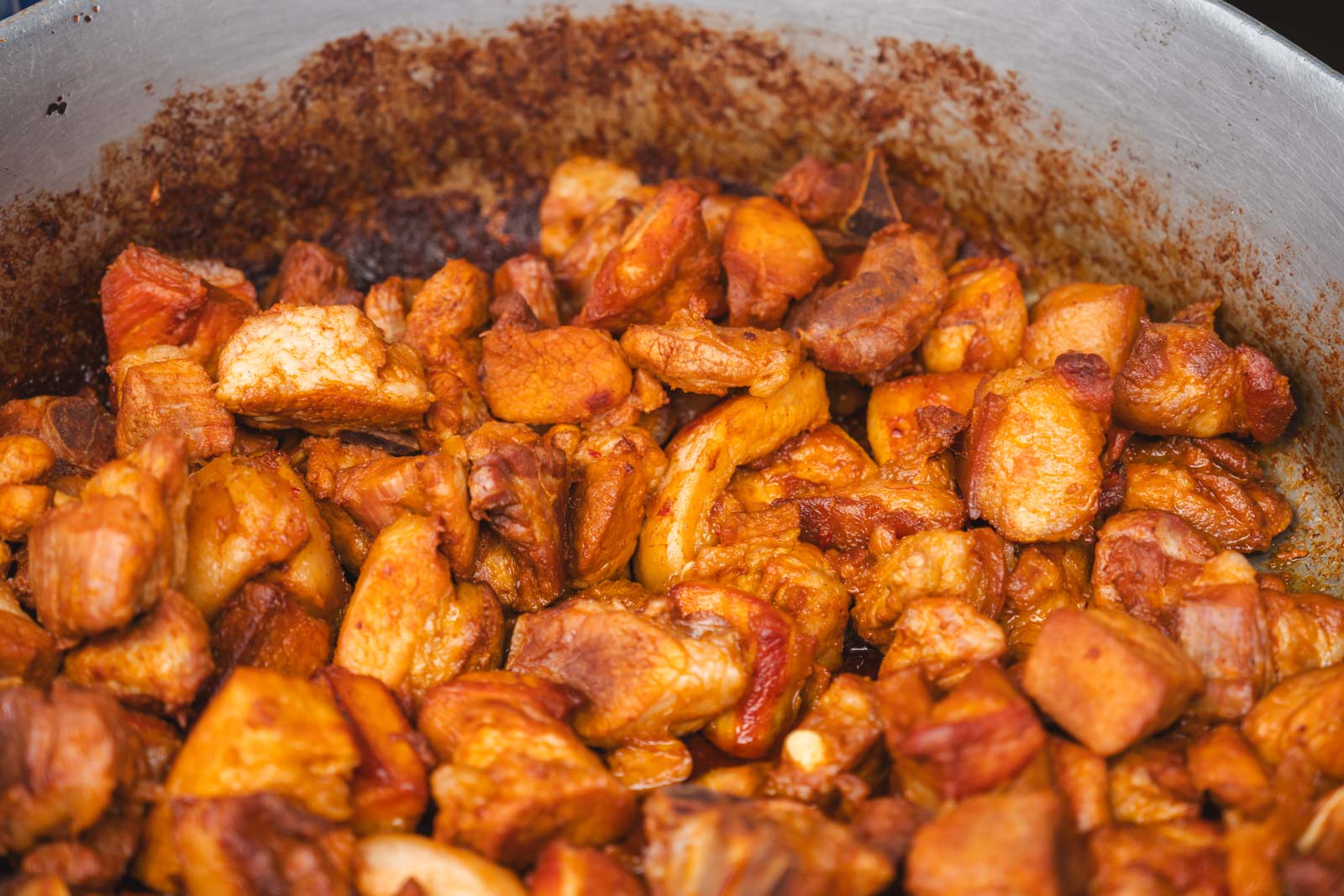
Hornado is a beloved Ecuadorian dish featuring slow-roasted pork as its centerpiece. It is celebrated for its succulent meat and crispy skin. This culinary delight is prepared by marinating the pork in a blend of garlic, cumin, and other spices and slow-roasting it until it achieves a perfect balance of tender inside and crunchy outside.
Hornado is a popular dish across Ecuador. It is found in markets, festivals, and family gatherings and symbolizes festivity and community.
It’s traditionally served with llapingachos (potato pancakes), mote (hominy), ensalada (a fresh salad), and aji, a spicy Ecuadorian sauce that adds a kick to the dish. In some regions, avocado slices and curtido, a type of pickled onion relish, are also common accompaniments, enhancing the flavors and textures of the meal.
19. Bandera
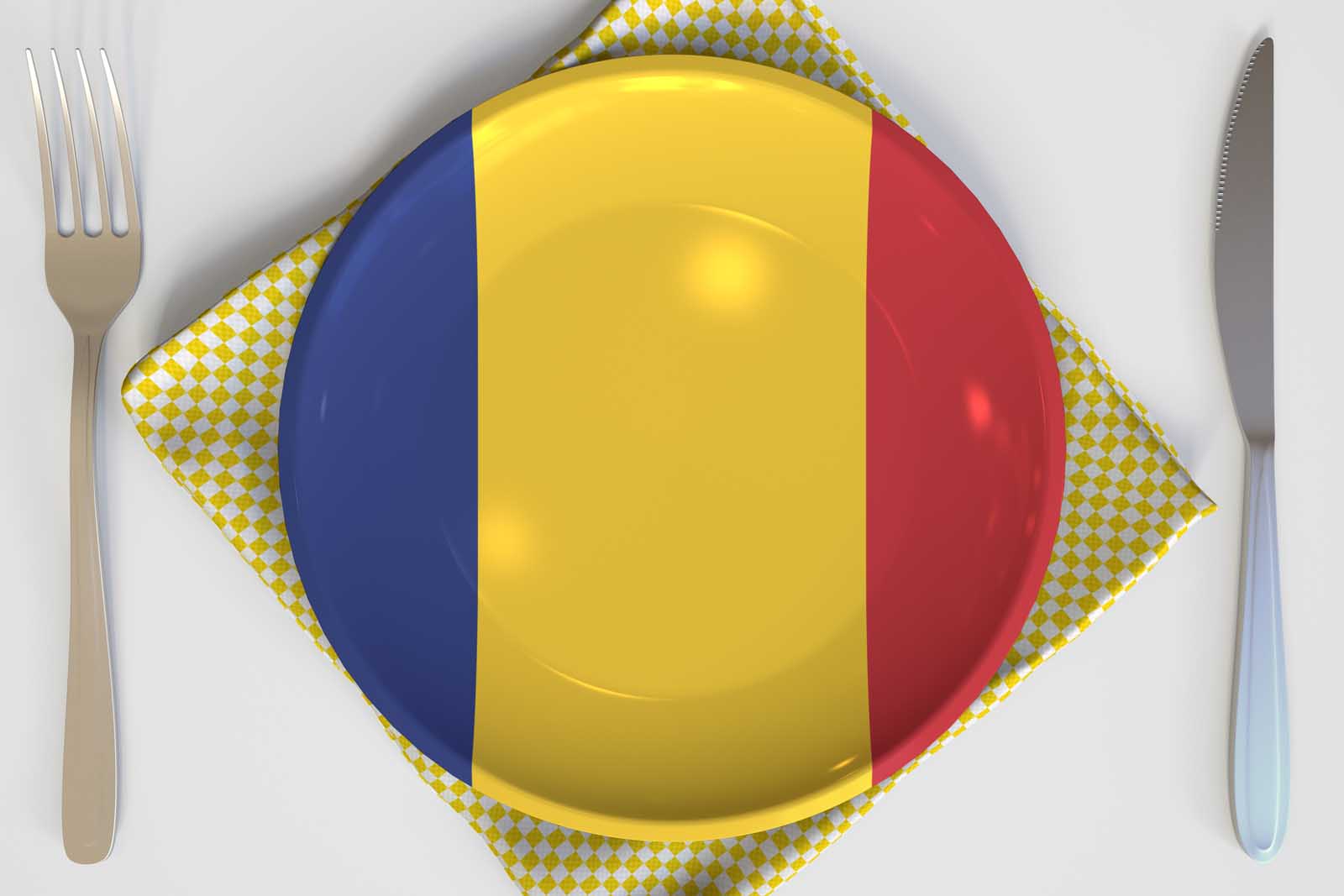
Bandera is a famously colorful Ecuadorian dish. Its origin is a bit of a mystery, but it’s mostly believed to have popped up in the 1970s. Bandera is a pot-luck style dish in the sense that it combines multiple dishes on a large platter—a mix-and-match food. You tend to get sliced avocado, white rice, and some type of ceviche (more on ceviche later). Salad with fresh tomato is also common.
The word ‘bandera’ translates to flag in English. Bandera dishes are found throughout South America, Central America, and the Caribbean. They are typically colorful to mimic the colors of the country’s flag. The Dominican Republic has a particularly tasty bandera dish.
Bandera is a great option for a quick introduction to Ecuadorian food. It’s one of the most common dishes you must try in Ecuador, and it can be found at most restaurants and cafes.
Typical Ecuadorian Food: FAQs
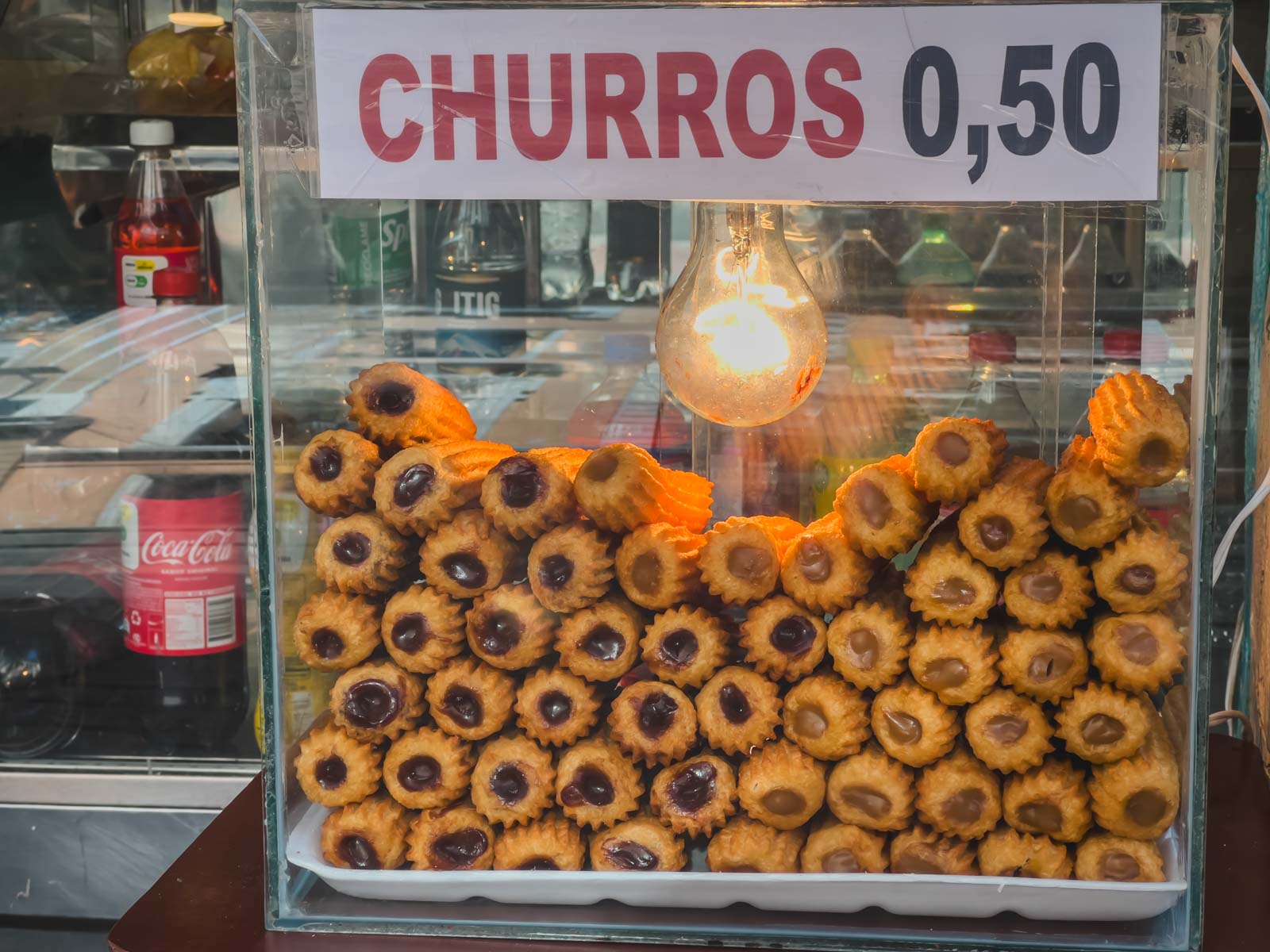
Whether you are craving Ecuadorian soups, breads, or meat dishes, rest assured—the country has plenty of choices. We personally love the variety of Ecuadorian cuisine. Before you go, though, check out these top FAQs.
What is a typical food in Ecuador?
Bolon de Verde is a massively popular food in Ecuador; they are tiny little deep-fried balls of green plantains that are filled with cheese and spices. The perfect snack.
What is the most popular street food in Ecuador?
Chochos, chifles and tostado are a popular street food in Ecuador. you can find them in Quito and other main cities in Ecuador
What is the most popular snack in Ecuador?
Green plantain chips, chocolate, and yuca chips are all excellent choices for traditional snacks in Ecuador.
What is Ecuador mainly known for?
Ecuador is known for its coastal dishes, carbohydrate components like potato and rice, and meats like pork, beef, chicken, and guinea pig inland and fish on the coast. Ecuadorian food is heavy in carbohydrates and protein. It also uses plantains and fruits.
Ecuadorian gastronomy emphasizes citrus-marinated juices and meats, from roasted pork to special chicken dishes. If you feel really adventurous, you can try traditional dishes like cuy asado or even pollo a la cola—chicken cooked in Coca-Cola. Ecuador is a fantastic spot for foodies and those wanting a fresh stamp of cuisine in South America. Everything has a sharp flavor.
Cheers to Ecuadorian Cuisine

It is fascinating to see how indigenous influences influence cuisine, such as the traditional Andean guinea pig meat. Equally, you can trace darker colonial history through abundant things like lime juice. Tasting Ecuadorian food is a way of better understanding the country’s history and cultural makeup.
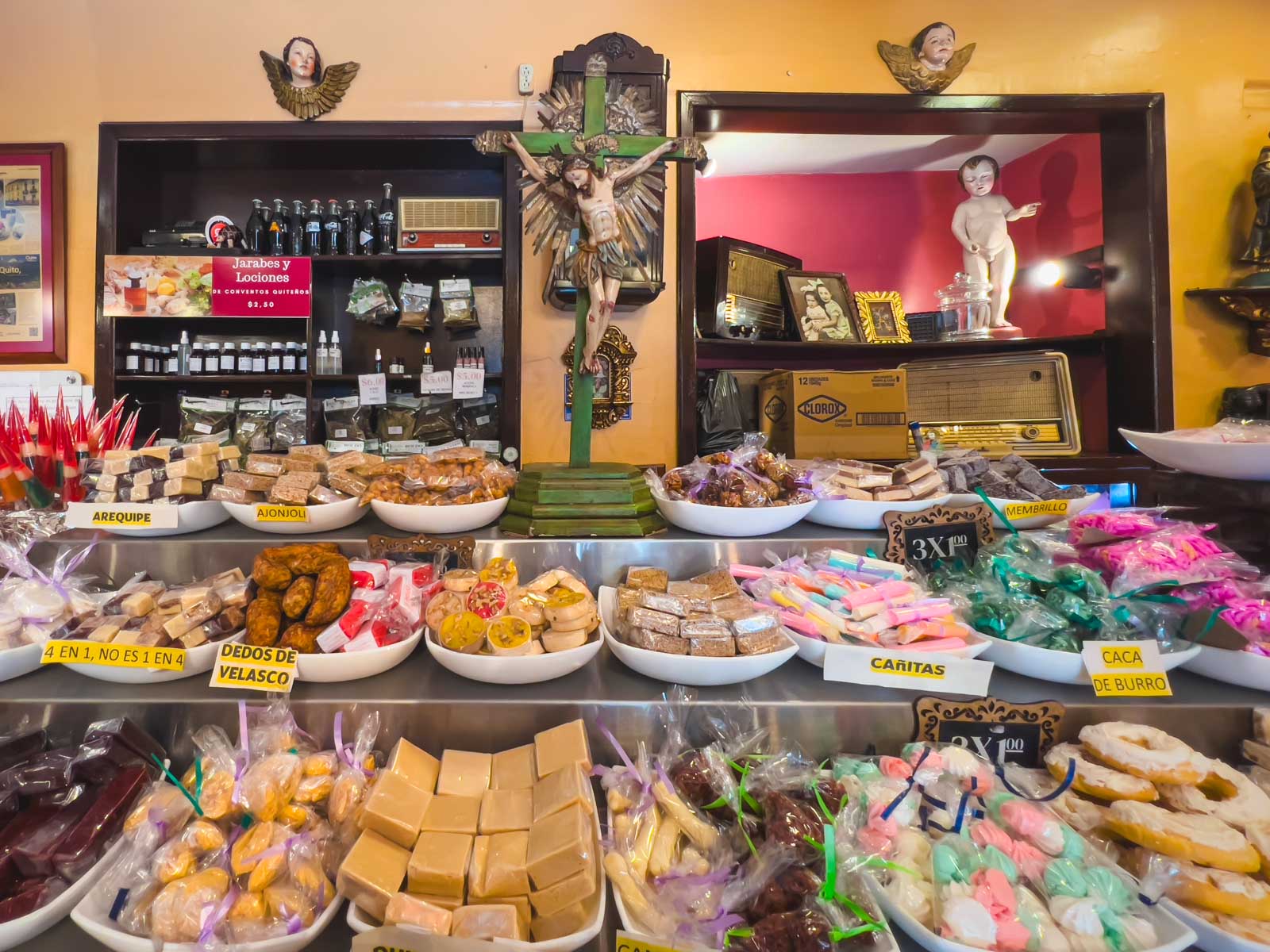
Are you visiting Ecuador? Check out our guide on whether it’s safe to visit right now, complete with timely updates on how to have the safest stay possible given current events and developments. If you are considering a Galapagos cruise, you can read all about our experience in this Galapagos Cruise review.
Ecuador has been one of our favorite countries to visit, and we hope you have a wonderful time. Try as many of these foods as possible—Ecuadorian cuisine is incredible.
Discover More Food From Around the World
- Brazilian Food: 25 Best Dishes to Try in Brazil
- Colombian Food: 28 Traditional Dishes to try in Colombia or at home
- Venezuelan Food: 17 Dishes to try in Venezuela or at Home
- Best Mexican Dishes: 29 Popular Mexican Foods
- Best Thai Food – Traditional Thai Dishes to Eat in Thailand or at Home
- Hungarian Food: 21 Traditional Dishes to Try in Hungary or At Home
- Filipino Food: 20 Best Dishes to Try in the Philippines
- Icelandic Food: 15 Traditional Dishes to Try in Iceland
- British Food: 23 Best UK Dishes to Try at Home or Abroad


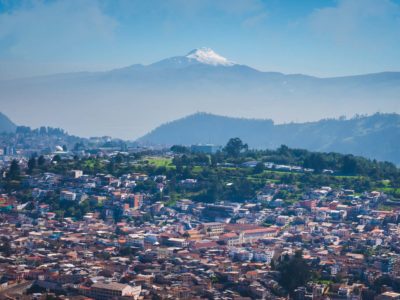

Amazing Article. Thank You for letting us know about the Ecuadorian Food.